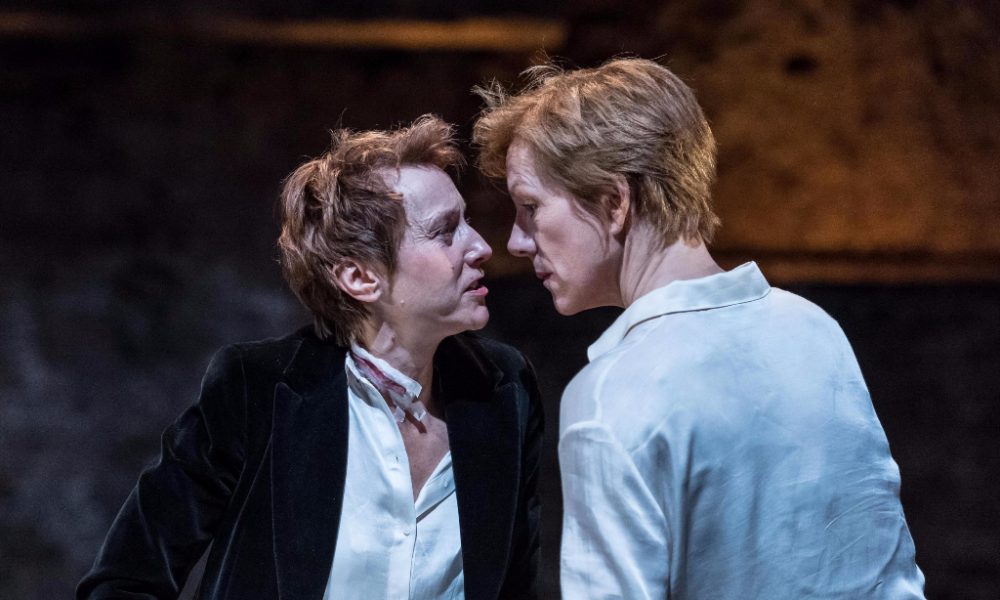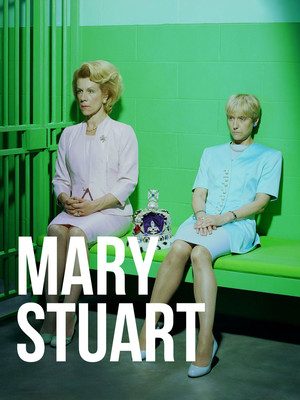Mary Stuart at the Almeida Theatre

The Almeida’s boy wonder has done it again. This time it’s the turn of Friedrich Schiller’s Mary Stuart to get Icked, the narrative spinning fiction from history as it chronicles the battle between Catholic Mary and Protestant Elizabeth. If Robert Icke’s name on the programme wasn’t enough the production comes with a glorious bit of theatrically, a coin toss designed to decide who takes the role of Mary and who dons the crown of Elizabeth. Yet this is no gimmick. It helps brings a duality to the roles, the “other” version of the play haunting the one witnessed on stage.
At the press night the coin spun in favour of Juliet Stevenson, casting her as the Virgin Queen to Lia Williams’s Queen of Scots. There is a slight arrogance to Williams’s Mary, the confidence of a leader who believes power is her birthright. By the end she becomes both messianic and motherly, a pure figure not dirtied by the weight of actually ruling. In contrast Stevenson captures the weariness of Elizabeth’s leadership, alternately raging and sighing at the fickle will of the people and the contradictory urgings of her court. When the two queens come together the air crackles, Elizabeth furious at the femininity allowed Mary while she is forced to lead from a position enshrined in masculine expectations.
While Williams and Stevenson dominate, there is plenty to admire at the sidelines. Rudi Dharmalingam burns bright as the duplicitous and dangerous Mortimer; Vincent Franklin expertly displays the political savvy he honed in The Thick of It as Burleigh; and as Leicester, John Light boils over as a man torn between queenly love and naked ambition.
Icke peppers his adaptation with loaded terms like refugee, changing the tone of Mary’s incarceration in the process; the very question of the Queen of Scots’ death warrant, meanwhile, echoes the debate surrounding Article 50. Elizabeth puts Mary’s life in the hands of a vote, only for the issue to be returned to the Queen with the added complication of public and private pressure. Underneath this Brexity umbrella lays a thread of religious fundamentalism, with the fervour of Mortimer’s incendiary conversion to Catholicism taking on a sexually aggressive edge. Finally, and unavoidably, the director turns his eye to the litany of compromises a female leader has to make in order to legitimise herself in front of a public expecting a male figure.
Mary Stuart manages to be both timely and timeless; it is a post-Brexit, post-Trump production that can nevertheless exist, unharmed, when separated from the current political climate.
Connor Campbell
Photo: Manuel Harlan
Mary Stuart is at the Almeida Theatre from 15th December 2016 until 21st January 2017, for further information or to book visit here.
























Facebook
Twitter
Instagram
YouTube
RSS